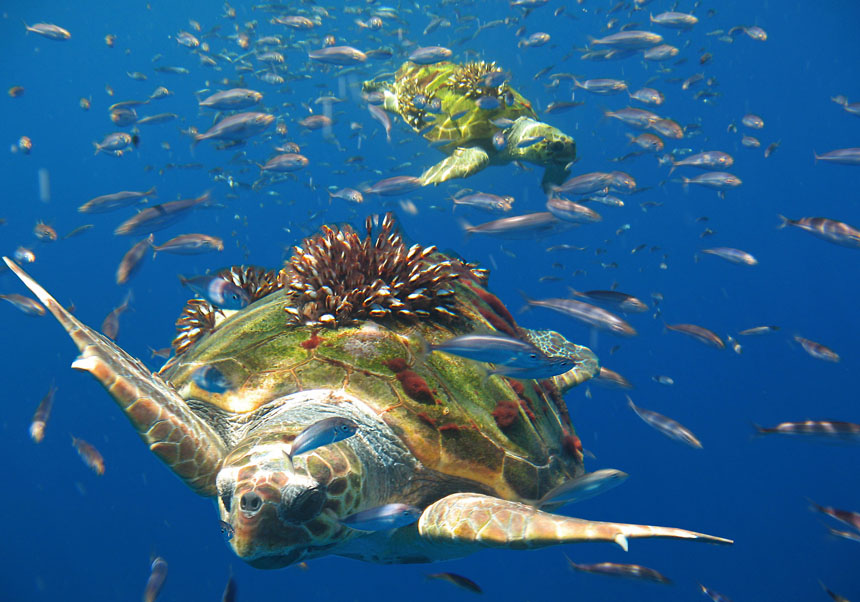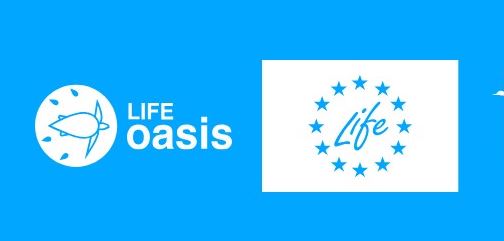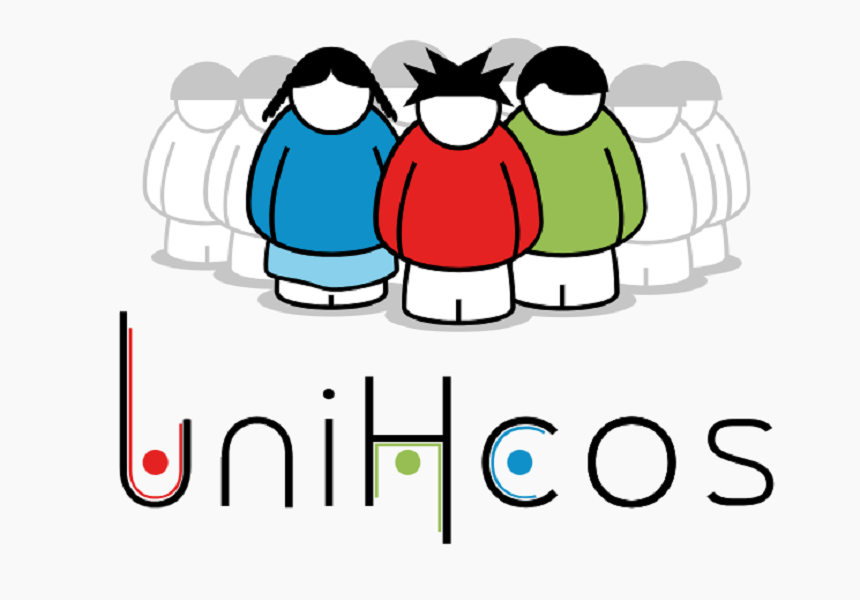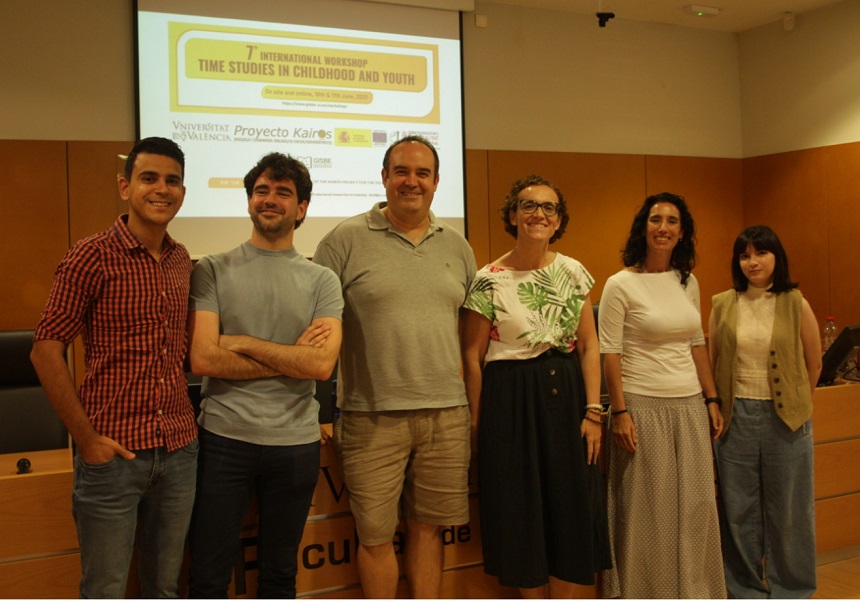The University of Valencia investigates how to protect sea turtles from abandoned fishing gear in the Mediterranean
- Scientific Culture and Innovation Unit
- February 18th, 2025

Researchers from the Cavanilles Institute of Biodiversity and Evolutionary Biology (ICBiBE) of the University of Valencia (UV) are leading the European project LIFE OASIS, funded with €5.5 million, which aims to improve methods against ghost fishing — caused by abandoned, lost or discarded fishing gear (ALDFG) at sea — and protect Mediterranean biodiversity. Researchers David March and Jesús Tomás are developing innovative tools to reduce the interactions between sea turtles and these objects. The project, co-financed by the European Union, is led by ALNITAK, an organisation dedicated to marine conservation, in collaboration with scientific entities such as universities and the Spanish National Research Council (CSIC).
Specifically, the ICBiBE team is investigating the “oasis effect”, a phenomenon in which anchored fish aggregating devices (AFADs) create marine microhabitats where turtles can become trapped. “Understanding how turtles use these structures is key to designing more sustainable fishing devices”, explains David March, researcher of excellence of the Valencian Community at ICBiBE and the principal investigator of the project.
Additionally, the University of Valencia is working with marine wildlife rescue centres in Spain, Italy and Malta to improve rescue protocols and the analysis of turtles trapped in abandoned fishing gear. “Studying the specimens admitted provides us with key information about the extent of the problem and helps us to design effective conservation strategies”, notes Jesús Tomás, researcher in the Marine Zoology Unit of the Cavanilles Institute and an expert in sea turtles.
Every year, a significant number of sea turtles become entangled in lost or abandoned fishing gear. With the Mediterranean shared by multiple countries and hosting various fishing fleets, protecting its ecosystem requires coordinated action and shared responsibility. This situation not only impacts biodiversity but also affects the sustainability of fisheries and maritime safety.
One of the main objectives of the LIFE OASIS project is to develop a smart fishing model using more advanced, efficient and sustainable anchored fish aggregating devices (AFADs). The second goal is to promote a collaborative network involving fishers, sailors and marine wildlife rescue centres across the Mediterranean to facilitate the rescue of sea turtles trapped in ALDFG. To achieve this, reports from fishers and sailors on the location of marine litter will be used to create detailed maps identifying critical accumulation points of ALDFG. These maps will be essential for preventing ghost fishing and mitigating its long-term impacts.
Furthermore, the LIFE OASIS team has the support of authorities, ports and patrol boats of the Maritime Service of the Spanish Civil Guard (SEMAR) and Maritime Rescue (SASEMAR), and collaboration in information campaigns and prevention initiatives.
In an effort to revolutionise sustainable fishing, the LIFE OASIS project has joined forces with fishers from the Balearic Islands, Malta and Sicily to develop a replicable fishing model based on anchored fish aggregating devices (AFADs). This approach not only reduces the loss of fishing gear and minimises bycatch through cutting-edge technology, but also maximises efficiency through the use of biodegradable materials. The result: an effective solution to combat ghost fishing while reinforcing the sustainability of the sector. This model will be developed in the Mediterranean but is designed to be replicated in other regions.
The LIFE OASIS project is co-financed by the European Union through the LIFE and Natura 2000 programmes and involves an international consortium including scientific institutions such as the University of Valencia, the Institute of Marine Sciences (ICM) of the Spanish National Research Council (CSIC), the Mediterranean Institute for Advanced Studies of the CSIC (IMEDEA-CSIC), the University of the Balearic Islands (UIB), the University of Pisa and the Anton Dohrn Zoological Station. The fishing sector also plays a central role, with the support of CEPESCA, the largest fishing confederation in Europe, as well as technology companies like SATLINK, alongside conservation organisations such as Filicudi Wildlife Conservation and Nature Trust Malta.
For more information about LIFE OASIS: https://lifeoasis.eu/
Annex photo captions:
- A sea turtle in the Mediterranean Sea.
Categories: Finançament recerca , Internacionalització recerca , Institut Cavanilles de Biodiversitat i Biologia Evolutiva , Investigació a la UV , Cultura Científica , Difusió i comunicació científica




















